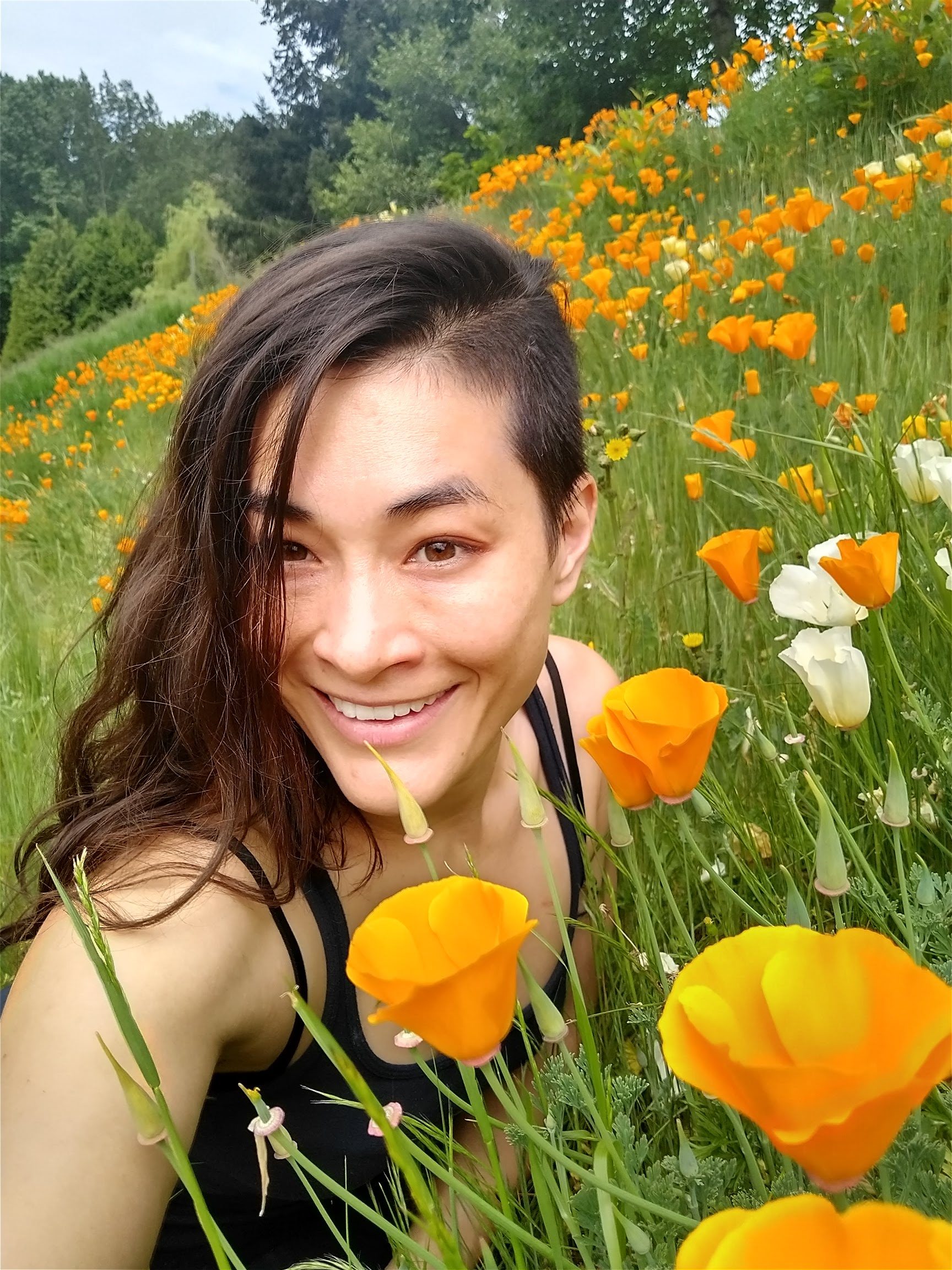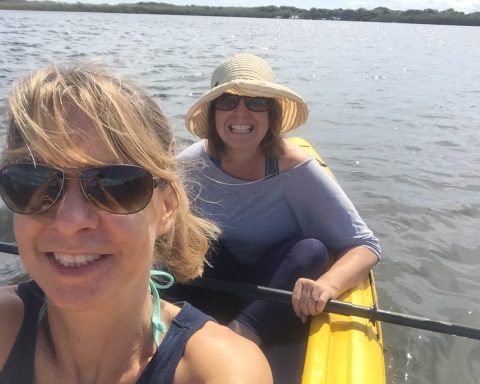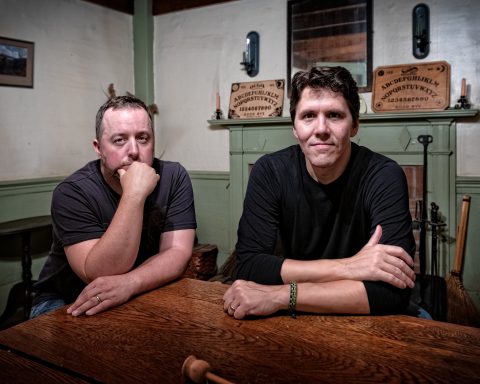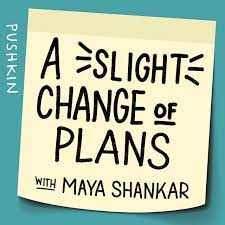Volunteering as a hotline advocate is important—and heart-wrenching—work. Every day, advocates listen to callers and share resources with survivors, allies, and family members.
As a volunteer for a domestic violence hotline, Ariel began to realize that many callers asked identical questions. She wondered to herself, “If everyone is asking the same 10 questions, then they are clearly not finding answers. Maybe there is a way to make that information more accessible, because it is really important stuff.”
Ariel began researching, and she discovered that there weren’t many podcasts sharing the nitty-gritty details in an accessible, friendly way. And that’s how she decided on podcasting as her medium to do so.
Ariel is a natural instructor. She’s taught Krav Maga and offered swimming lessons, and speaking to groups comes easy to her. In fact, she says she has always seemed to find herself coaching and guiding others in some capacity.
Because of this, she wasn’t nervous about getting behind the microphone. She recalls:
“For me, recording is actually easier. Talking into a microphone is like writing in a diary—there’s a sense of freedom and a level of comfort. I wasn’t expecting that. It was also healing, to bring in my own personal stories to highlight what I wanted to talk about.”
As Ariel was planning the launch of The Domestic Violence Discussion, there were specific goals she wanted to accomplish in the first season. She shares:
“There’s a need for certain information. And I knew that I could combine that with my own desire to talk about the often-overlooked aspects of domestic violence. My story is that I survived emotional abuse, and later, sexual abuse. I wasn’t able to heal or validate my experience for years, because I never heard anyone even acknowledging abuse, especially in Asian culture. So, in season one, I wanted to build a foundation… definitions, examples, and all the flavors of abuse. Once I laid that groundwork, I would then share the nuts and bolts. I didn’t want to make my story the focus. I wanted to bring in my own humanity, pain, trauma, healing, and empowerment so listeners know that there is a human behind every survivor story.”
In an effort to make the information accessible and easy to digest for listeners, Ariel knew she would need to find a delicate balance. She explains:
“When someone is in crisis mode, it can be frustrating to comb through different articles and websites for guidance. Even during my own research, I was sifting through so much information—websites, research papers, survivor stories—and then I would distill the most important parts down into something accessible and approachable. 
“For example, it can be overwhelming to Google ‘emotional abuse.’ When you’re just trying to figure out if you’re being abused, it’s an immediate barrier to attempt to digest all the information you find. It can be intimidating to call a hotline, especially if English isn’t your first language, or if your abuser is in the same room as you because you’re quarantining due to COVID. I wanted to provide context with practical information and examples from my own life. My thought was that people might be able to relate to the feelings even if their story isn’t the same. I wanted to remove the overwhelm that might prevent someone from taking the next step.”
While Ariel’s husband supported her decision to begin podcasting, she has not fully disclosed the endeavor to her family as of yet. She says:
“In my opinion, it’s better that way. A part of my comfort level is the anonymity of talking about my sexual abuse. There’s a level of intimacy that requires a deep trust in what I’m doing. I’m essentially saying, ‘When you listen to this, you’re going to learn uncomfortable things about me.’”
Shortly after launching, Ariel had a socially distanced dinner with two friends. When she shared her podcast news with them, her friends opened up, and Ariel recorded their stories. She says:
“It really hit home for me how important it is to have this much-needed conversation. When we realize that we’re not alone, there is more space to heal. It’s incredibly empowering, and I think people don’t understand the impact of validation.”
As her podcast grew, so did Ariel’s desire to provide additional resources to survivors. Next, she founded the Emotional Abuse Discussion non-profit. In October, during Domestic Violence Awareness month, the non-profit’s first campaign focused on Asian American Pacific Islander survivors. Part of the campaign was to create a toolkit for survivors and allies.
The second campaign will take place in April 2022 during Sexual Assault Awareness month.
Ariel is a woman on a mission to help others, and in the process of doing so, she is continuing her own healing:
“When we talk about healing journeys, we need to give ourselves space, because healing is never linear. And there are going to be times when we fall to the floor. It’ll happen less and less as we get better, but it’s still going to happen. And that’s okay. Healing is not so much about, ‘I’m fixed now.’ It’s about knowing how to cope, so that when we go through a spiral, we can get through it. We can pull ourselves out, and not beat ourselves up for it.”
Ariel offers these final words of wisdom:
“If you ask five people for advice on the same subject, you’re going to get 12 different answers. People are always going to tell you how to do something, how to do it better, or that you should do it their way. As survivors, we are the experts on our own lives and our own situation, and we know it best. We have to go with our gut, and we have to trust ourselves to do the right thing. If it doesn’t turn out the way we expect, we learn from it and move on. That’s part of the learning process, and it’s okay.”
When Ariel isn’t working on her podcast or non-profit, she is training for Ironman competitions or knitting. Her cat often joins her on social media livestreams.
January 2022 Issue












